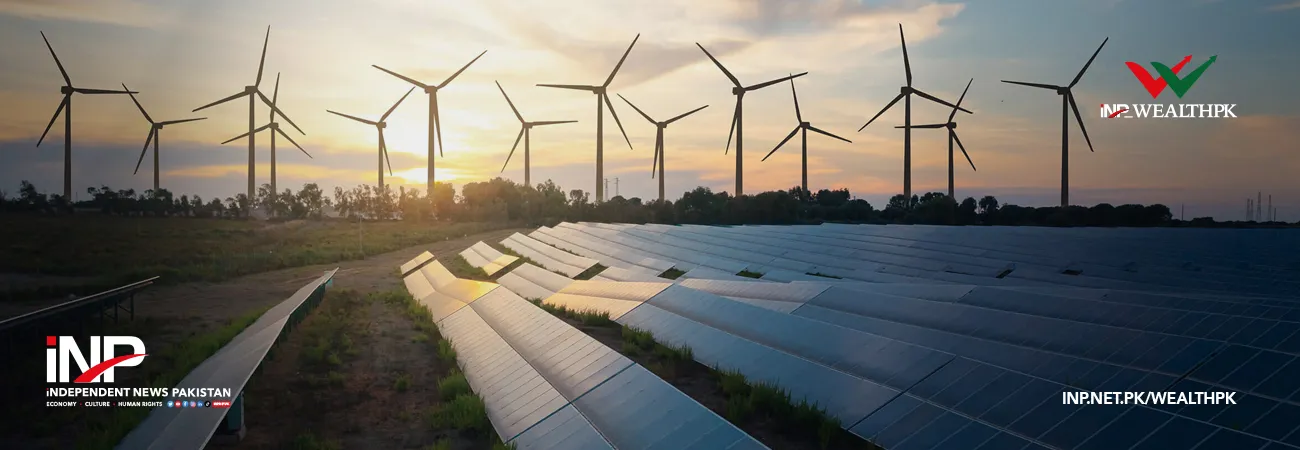INP-WealthPk
Amir Saeed
Transition to renewable energy has the potential to significantly reduce Pakistan’s reliance on energy imports, improve trade balance, and foster long-term economic sustainability.

Talking to WealthPK, Ahad Nazir, Associate Research Fellow at the Sustainable Policy Development Institute (SDPI), said Pakistan’s economic landscape presented a complex interplay of resilience, ambition, and ongoing challenges, particularly in the energy sector. The country faces significant hurdles due to its heavy reliance on energy imports, especially oil and liquefied natural gas (LNG), which contribute to a substantial trade deficit.
He highlighted the critical nature of energy imports in the country’s economic planning. Dependence on imported fuels has been exacerbated by the volatile global markets, leading to persistent trade deficits. “In 2024, energy imports remained a significant burden, further complicated by the exchange rate volatility and inflationary pressures that strain the import bill for fuel and industrial machinery. Despite these challenges, there is a promising shift towards the renewable energy projects, which could reduce reliance on costly imports and create new economic opportunities.”
He highlighted Pakistan’s substantial potential for renewable energy generation, particularly in solar and wind resources found in regions like Sindh and Balochistan. By harnessing these resources, Pakistan could mitigate its dependence on imports. “For instance, the growing solar panel market, supported by the local manufacturers and international investors, positions solar energy as a game-changer for the country.
Additionally, existing projects like the 50MW wind farm in Jhimpir showcase the potential for large-scale wind energy generation.” Talking to WealthPK, Dr Anwar Shah, a development economic researcher at the Quaid-e-Azam University Islamabad, said the expanding solar and wind power production would significantly lower the demand for imported oil and natural gas, which were major contributors to the country’s trade deficit.
This shift could ease fiscal pressure and stabilize the volatile exchange rate by reducing the foreign currency outflows. He highlighted that renewable energy offered a long-term solution to inefficiencies in the energy infrastructure. Frequent power outages and inability to meet domestic demand have plagued the power grid. “Investments in green energy, alongside grid modernization efforts, could enhance reliability, boost industrial productivity, and lower business costs.
This would enable Pakistan to compete more effectively in the global markets, particularly in sectors like textiles, IT services, and agriculture,” he suggested. Shah added that the country’s push for renewable energy could diversify its export base beyond the traditional textiles. By fostering domestic production of renewable technologies such as solar panels and wind turbines, the country could position itself as an exporter of green energy solutions to both regional and global markets.
Credit: INP-WealthPk













